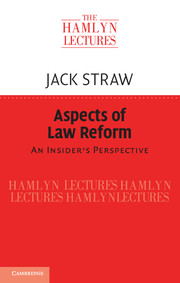2 - The Human Rights Act and Europe
Published online by Cambridge University Press: 05 June 2014
Summary
In this chapter I want to consider the relationship between the Human Rights Act, our courts and the British Parliament on the one hand, and the European Court of Human Rights in Strasbourg and the Council of Europe on the other. I will be arguing:
That the Human Rights Act has been a resounding success. It is here to stay. It is not the problem, rather part of the solution to a fundamental impediment to the operation of democratic politics across Europe: namely, the ever-widening jurisdiction of the European Court in Strasbourg, for which there is neither authority in the treaties, nor popular consent.
That our higher courts should have the confidence to come to their own interpretations of rights under the European Convention on Human Rights, without having automatically to follow Strasbourg’s jurisprudence. Here I come down strongly on the side of those such as Lord Irvine of Lairg, former Lord Chancellor, and Baroness Hale, Justice of the UK Supreme Court, in their rejection of the ‘mirror’ principle set out in a series of leading cases, starting with Alconbury and Ullah.
That encouraging our higher courts to come to their own, more independent, conclusions is not an invitation to them to stray into areas which should properly be resolved by political process, nor is there any evidence that they would do so.
That the Strasbourg Court needs to rein in its scope so as to revert to its founding purpose: the protection of those basic human rights, the abuse of which during the Second World War was the reason for its establishment.
. . .
- Type
- Chapter
- Information
- Aspects of Law ReformAn Insider's Perspective, pp. 25 - 50Publisher: Cambridge University PressPrint publication year: 2013
- 1
- Cited by



